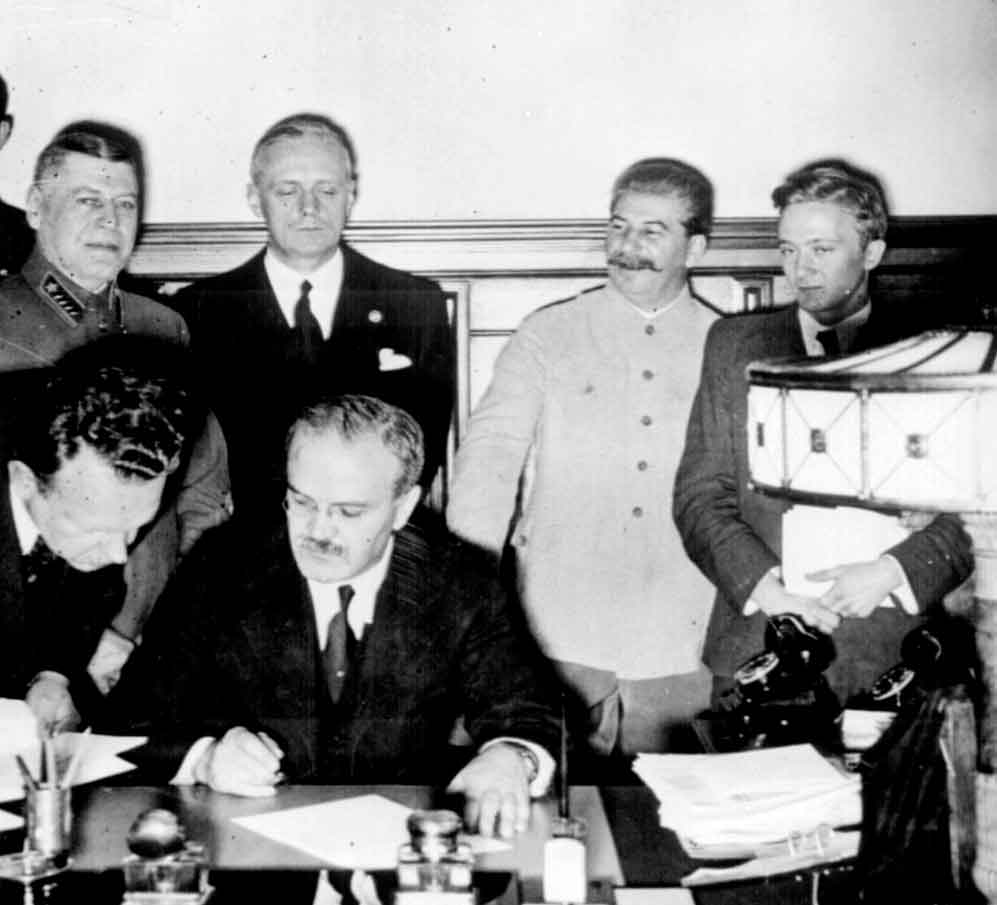Soviet German Non-Agression Agreement
The USSR and Nazis Germany signed a non-aggression agreement on August 23, 1939, in Moscow. The deal came as a surprise and changed the balance of power in Europe in favor of Germany.
In a stunning move, the Nazis and the Soviet Union signed a non-aggression pact on August 23, 1939. The agreement which was also known as the Molotov-Ribbentrop Pact. It was signed by German Foreign Minister Joachim von Ribbentrop and Soviet Foreign Minister Vyacheslav Molotov in Moscow. The public agreement called for peace between the two countries and pledged that neither would enter into an alliance against the other.
There was a secret protocol that was rumored but only came to light after the war. Under its terms, if there were a war, the areas between Germany and the Soviet Union would be divided. Germany was to receive Western Poland and Lithuania, while the Soviet Union would get Eastern Poland, Estonia, Latvia, and Finland.
The Soviets had previously been negotiating with France and Great Britain on a mutual assistance pact. Stalin, however, had lost faith in the British and French ability to deal with the Germans. The Soviets had demanded the right to send troops into Poland in case of a German attack, something that the Poles refused to permit. Thus, no agreement could be reached on mutual defense. The Non-Aggression Pact decisively changed the European balance of power in favor of the Germans. A week after the signing of the agreement, Germany attacked Poland.
 >
>